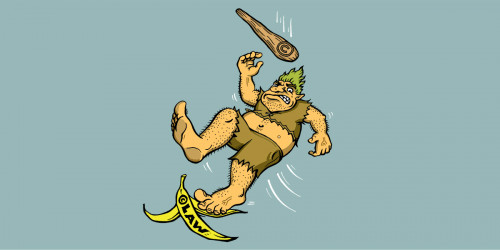Laura Quilter on Google Print: Don't Embrace Limits to Fair Use
As has been widely reported, Google decided last week to hit the pause button on its ambitious Google Print library project to allow publishers to opt-out of scanning. The decision has sparked considerable debate, both about the copyright questions the project raises and Google's strategy for dealing with them. Here, Laura Quilter offers an especially compelling and thoughtful response, arguing that Google should move forward and that "it just doesn't make sense for information activists/copyfighters to start downwardly limiting various users' sets of rights." We couldn't agree more.
Excerpt:
Libraries should push fair use in the service and interests of their users, history, and humanity. But libraries are not the sole beneficiaries of fair use, nor should they be. For-profit corporations, not-for-profit corporations, heck, even tax-exempt religions — all should be able to exercise fair use broadly.
Well, Siva [Vaidhyanathan] says Google is not a library. It's true that Google is not the mom-and-apple-pie ALA version of a downtown library, complete with modern atrium and skylights for Mayoral gatherings. But I think we have to push on "library" for a bit. The Internet Archive is certainly a library. My home collection is certainly a library. (It even circulates, and I have remote storage, and I recently began a belated investment in DVDs.) Libraries may be private, semi-private, public; for- or not-for-profit; paper or digital. Why is Google not a library?
Read the whole thing.
Related Updates
Who needs a DDoS (Denial of Service) attack when you have a new president? As of February 2nd, thousands of web pages and datasets have been removed from U.S. government agencies following a series of executive orders. The impacts span the Department of Veteran Affairs and the ...
Last week’s BMG v. Cox decision has gotten a lot of attention for its confusing take on secondary infringement liability, but commentators have been too quick to dismiss the implications for the DMCA safe harbor. Internet service providers are still not copyright...
EFF, Public Knowledge, and the Center for Democracy and Technology Urge The United States Court of Appeals for the Fourth Circuit to Protect Internet Subscribers in BMG v. Cox.
No one should have to fear losing their Internet connection because of unfounded accusations. But some rights holders want to...
Washington D.C.—The Electronic Frontier Foundation (EFF) sued the U.S. government today on behalf of technology creators and researchers to overturn onerous provisions of copyright law that violate the First Amendment.
EFF’s lawsuit, filed with co-counsel Brian Willen, Stephen Gikow, and Lauren Gallo White of Wilson Sonsini Goodrich...
If you only listened to entertainment industry lobbyists, you’d think that music and film studios are fighting a losing battle against copyright infringement over the Internet. Hollywood representatives routinely tell policymakers that the only response to the barrage of online infringement is to expand copyright or even create new copyright-adjacent...
Copyright Lawsuits Won’t Stop People from Sharing ResearchIn principle, everyone in the world should have access to the same body of knowledge. The UN Declaration of Human Rights says that everyone deserves the right “to share in scientific advancement and its benefits.”The reality is a bit messier. Institutional subscriptions...
Right now the FCC is considering a set of rules that would allow Internet providers to offer faster access to some websites that can afford to pay. We need to stop them.
Let’s start with the obvious: The Internet is how we communicate and how we work,...
The content lobby's narrative about the Internet's impact on the creative industry has grown all too familiar. According to this tiresome story, Hollywood is doing everything it can to prevent unauthorized downloading, but people—enabled by peer-to-peer technologies, “rogue” websites, search engines, or whatever the bogeyman of the moment is—keep doing...
In July 2009, South Korea became the first country to introduce a graduated response or "three strikes" law. The statute allows the Minister of Culture or the Korean Copyright Commission to tell ISPs and Korean online service providers to suspend the accounts of repeated infringers and block or...
The "Copyright Alert System" – an elaborate combination of surveillance, warnings, punishments, and "education" directed at customers of most major U.S. Internet service providers – is poised to launch in the next few weeks, as has been widely reported. The problems with it are legion. Big...








